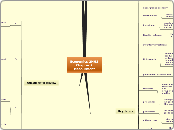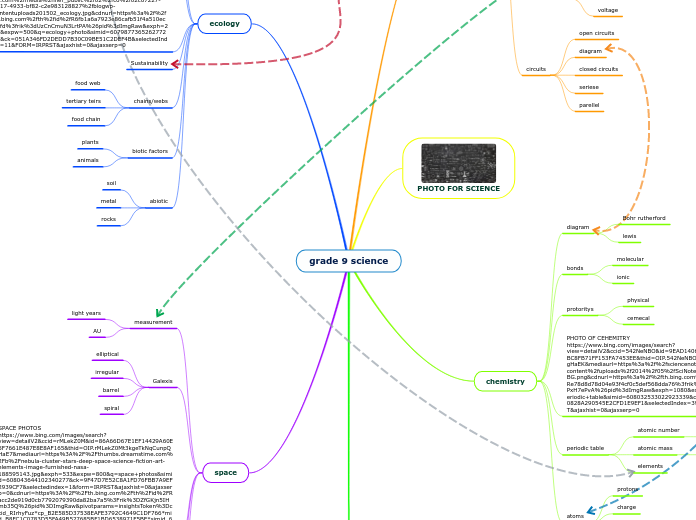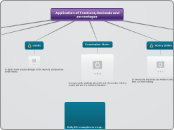Economics 2HH3Chapter 2Measurment
that really cool
Questions for Review
15.
give two reasons why the unemployment ratemay mismeasure the degree of labour market tightness
measured unemployment only accounts for thenumber of individuals unemployed
without reference to how intensive they search for new jobs
Measured unemployment excludes discourages workers
14.
What are the two ways in which national wealthis accumulated
and increases in claims against foreigners (a current account surplus)
National wealth is accumulated as increases in the domestic stockof capital (domestic investment)
13.
national savings
measures additions to national wealth
is equal to private savings pus government savings
government savings
measures reductions in government debt
increase in government wealth
What are the differences and simularities amongprivate sector savings
private savings measures additions to private sectorwealth
12.
Explain 3 problems in the measurment ofreal GDP
Real GDP is difficult to measure due to
and the value of newly introduced goods
difficulties in estimating the extent of quality changes
changes over timein relative prices (SUB BIAS)
11.
Explain what chain-weighted is
the price weights are determined by averaging the prices of theindividual goods and services over the two adjacent years
chain weighted directly compares production levels onlyin adjacent years
10.
Why does the base year matter in calculatingreal GDP?
because relative prices change over time, comparisons of realGDP accross time can differ according to the chosen base year
real GDP is therefore a weighted average of individualproduction levels
the weights are determined according to prevailing relativeprices in teh base year
real GDP compares different years' production at a specific set of prices
those that prevailed in the base year
GDP values production at market prices
9.
explain why they are not included in GDP
transfers are no included in the measurement of GDPas they are money tranfers and do not represent incomefrom production activity
What are government transfers
transfers include payments under Old age security - Including
Employment insurance
The CPP
Old age security
transfers are outlays transferring purchasing power from one groupof economic agents to another
8.
What is investment
Investment includes
non residential investment
Residential investment
I = Y - C - G - NX
Investment is equal to private domestic expenditure on goodsand services
those that are produced but non consumed during the current period
7.
What is the largests expenditure component of GDP
Government Spending
6.
what are the two difficulties in the measurment of aggregrateoutput using GDP
GDP also measures the value of a governmentspending at its costs of production
which may be greater or less than its true value
measured GDP does not include production in the underground economy
this is difficult to estimate
5.
why or why not
GDP also measures only total income withoutreference to how that income is distributed
however, GDP ignores the value of non-marketed economy activity
is GDP a good measure of economic welfare
GDP provides a reasonable approximation ofeconomic welfare
4.
What is the difference between GDP and GNP
net factor payments represent income for domestic residentsthat is earned from production that takes place in foriegncountries
GNP is equal to GDP (domestic production) plus net factorpayments from abroad
3.
why is the income-expenditure indentity important
he identity also provides two separte ways of measuringtotal output in the economy
the identity emphasizes the point that all sales ofoutput provide income somewhere in the economy
2.
explain the concept of value added
for each producer, value added is equal to the valueof the total production mins the value of intermediategoods
1.
What are the three approaches used to measure GDP
expendature
income
product
Key Terms
discouraged workers
those who are not in the labour force and have stoppedsearching for work, but actually want to be employed
labour market tightness
the degree of difficulty firms face in hiring workers
participation rate
the number in the labour force dived by the working-age population
unemployment rate
the number of unemployed divided by the number in the labourforce
not in the labour force
in the Stats Can household survey, those who are neitheremployed or unemployed
unemployment
in the Stats Can monthly household survey those who were notemployed during the past week but actively searched for workat some time during the last four weeks.
employment
in the Stats Can monthy household survery, those who workedpart-time or full-time during the past week
capital stock
the quantity of playn, equipment, housing, and the inventoriesin existence in an economy at a point in time
national wealth
the stock of assets held by the country as a whole
current account surplus
net exports plus net factor payments from abroad
national saving
private sector saving plus government saving
government deficit
the negative of government surplus
government surplus
identical to government saving
government saving
taxes minus transfers, minus interest on government debt,minus government expenditures
private sector saving
private disposable income minus consumption expenditures
private disposable income
GDP plus net factor payments, plus transfers from thegovernment, plus interest on the government debt,minus taxes
stock
quantity in existance of some object at a point of time
flow
a rate per unit time
consumer price index (CPI)
current-year total expenditures, divided by current-yeartotal expenditures at base year prices, all multiplied by 100
implicit GDP price deflator
nominal GDP divided by real GDP, all multipied by 100
chain-weighting
an approach to calculating real GDP that uses a rollingbase year
real change
the change in a quantity of a good, a service, or an asset
nominal change
the change in the dollar value of a good, a service, or an asset
inflation rate
the rate of change in the price level from one period to another
price level
the average level of prices across all goods and services in the economy
price index
a weighted average of prices accross all goods and service inthe economy
transfers
government outlays that are transfers of purchasing power from onegroup of private economic agents to another
government expenditures
expenditures by federal, provincial, territorial, andmunicipal governments on final goods and services
Net exports
Expenditures on domestically produces goods and servicesby foreigners (exports), minus expenditures on foriegn-producedgoods and services by demestic residents (imports)
inventory investment
goods produced in the current period that are setaside for future periods
fixed investment
Investment in Plant, equipment, and housing
investment
goods produced in the current period but not consumed in the current period
consumption
goods and services produced and consumed during the current period
underground economy
all unreported economic activity
gross national product (GNP)
GNP = GDP + Net Factor payments to Canadianresidents from abroad
income-expenditure identity
Y = C + I + G + NX
NX - Net Exports
G - Government expenditures
I - Investment expenditures
C - Consumption expednitures
Y - aggregate income
output
value added
the value of goods produced, minus the value of intermediategoods used in production
intermediate goods
a good that is produced and then used as an input in anotherproduction process
income approach
the approach to GDP measurement that determines GDPas the sum of all incomes received by economic agentscontributing to production
expenditure approach
the approach to GDP measurement that determines GDPas a total spending on all final goods and services productionin the economy
product approach
the approach to GDP measurement that determines GDP as thesum of value added to goods and services in production accrossall productive units in the economy
National Income and ExpenditureAccounts (NIEA)
the official Canadian accounts of aggregate economicactivity, which include GDP measurements conducted byStatistics Canada
gross domestic product (GDP)
the dollar value of final output produced duringa given period of time within a country's borders
Labour Market Measurement
Saving, Weath, and Capital
Nominal and Real GDPand Price Indices
PROBLEMS WITH MEASURING REAL GDPAND THE PRICE LEVEL
MEASURES OF THE PRICE LEVEL
REAL GDP
Measuring GDP: The NationalIncome and Expenditure Accounts
COMPONENTS OF AGGREGATE EXPENDITURE
Government Expenditures
Net Exports
Investment
Consumption
WHAT DOES GDP LEAVE OUT?
GROSS NATIONAL PRODUCT (GNP)
AN EXAMPLE WITH INTERNATIONAL TRADE
AN EXAMPLE WITH INVENTORY INVESTMENT
THE INCOME APPROACH
THE EXPENDITURE APPROACH
THE PRODUCT APPROACH TOMEASURING GDP









